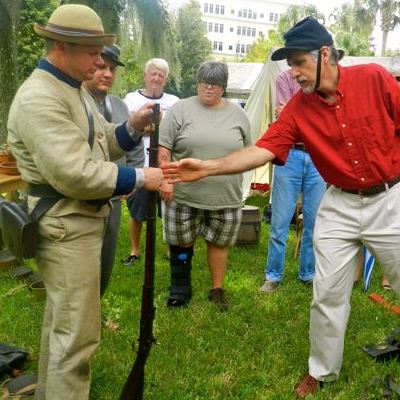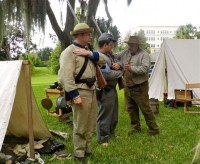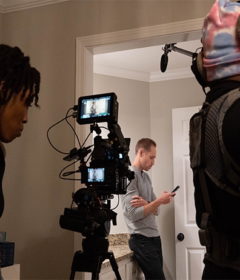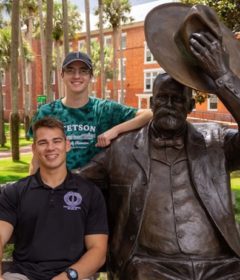Civil War history relived in class outdoors

Civil War re-enactors set up an encampment on Oct. 2and 3 in the Quad, between Sampson Hall and the Hand Art Center, and in full uniform taught a history lesson as part of Dr. Paul Croce’s The American Civil War class. Across two tables were assorted artifacts – swords, silverware, barrels, pots, chairs, flasks, glasses, guns, knives and instruments. Many were antiques; some were replicas. Despite the age and value of the objects, students were encouraged to pick them up.
“Many of these things could be museum pieces,” Croce explained as he held an antique spoon. He continued to describe why he believed it to be an authentic antique, comparing it to a replica which sat on the table.
Ralph Epifanio, a retired teacher, owned all the artifacts and brought spare Civil War replicas and garments and encouraged all to change – in the setup encampment tent – to join in with the encampment. For Croce, the experiential moments of the class turned Civil War history into reality, transforming it from 19th century events into modern day experiences. His class had an opportunity to review it in a tangible way – to see, touch and feel the reality of it all.
“I try to connect the past with the present,” Croce said. He suggested that the arguments for and against wars have remained the same even up to today as the class delved into the internal ideology of the war. Some students supported an end to the war because of the blood and death; yet others supported it in favor of freedom and to retain social mobility.

Croce was careful to remind students of the reality that comes with war. “We forget when we get so glorified that it was so brutal – people were knee deep in blood,” he said. He continued to explain that in that era, some had picnics to watch the war wage on, but this quickly ended after the first few battles, as they saw the “absolute brutality of war.”
by James Albright
SUM Student Intern



